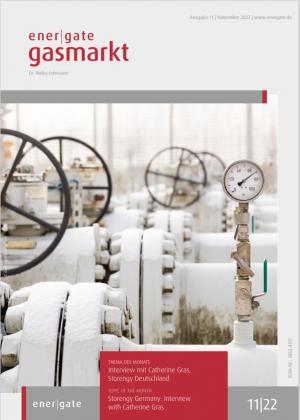Many market participants point out that the winter of 2023/24 could be "harder" than the current winter season. Above all, because it may become more difficult to refill the storage facilities. Catherine Gras, managing director of the storage operator Storengy Deutschland, shares these concerns. She explained why in an interview with me. But Ms Gras also has a suggestion: THE should tender the Strategic Storage-Based Options (SSBOs) earlier and more frequently and also adapt the design. Ms Gras also explains in the interview why she thinks this would be helpful.
ener|gate Gasmarkt: Ms Gras, why will refilling be a challenge?
Ms Gras: One important point is the lack of storage bookings. Unlike last year, 55 per cent of the capacity has not yet been booked at the six largest operators. That means more than 100 TWh of working gas capacity is still open, probably as much as 130 TWh for Germany.
ener|gate Gasmarkt: What is the reason for this?
Ms Gras: A few things play a role there. At Storengy Germany, we have a hedging strategy and try to sell part of the capacity into the future. When we tried to do it this year, no customer was willing to book storage capacity for next year. The uncertainty about the Gas Storage Act played a major role, here...



